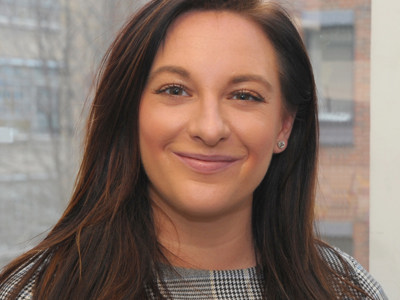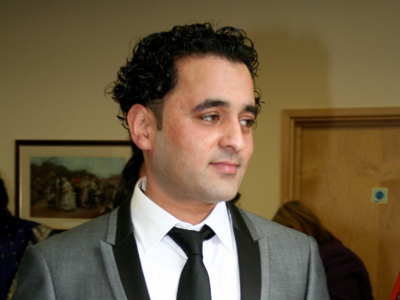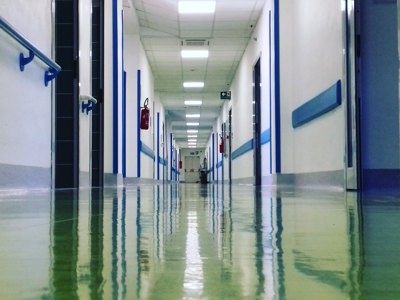
Coroner finds Lewisham Hospital staff missed opportunities to save the life of newborn Khalia Thomas
A coroner has concluded that Khalia Thomas would not have died aged just 38 minutes old, had staff at University Hospital Lewisham not missed opportunities to escalate her mother’s care.
Posted on 29 May 2025
Assistant Coroner Fleur Hallett also highlighted that staffing levels on the antenatal and labour wards at University Hospital Lewisham (UHL) had been inadequate, because of an on-site staff training day, sickness and bank workers who had cancelled their shifts at the last minute.
The inquest into Khalia’s death was held between Monday 19 and Thursday 22 May 2025 at Inner South London Coroner’s Court. The coroner delivered her conclusion on Tuesday 27 May 2025.
Khalia’s mother, Lay Duong, who is known as Lucy, arrived at UHL in the early hours of Friday 25 November 2022, in the latent stage of labour and struggling with painful contractions. At the time she was 36 and lived with her partner and their three children in southeast London.
The inquest heard how Lucy told UHL staff that she could no longer feel Khalia moving and was put onto a cardiotocography (CTG) machine for continuous monitoring. However, evidence showed that despite significant drops in Khalia’s heart rate Lucy was wrongly categorised as a low-risk pregnancy and her care was not escalated in line with the trust’s own policy.
At the inquest, witnesses from Lewisham and Greenwich NHS Trust described staffing issues as “dire” and said that staff felt “desperate” because of how stretched they were with other high-risk births. Despite this level of acuity, available midwives who were on-site at a training day were not brought back onto the wards.
The coroner noted in her conclusion that Lucy was also wrongly taken off CTG monitoring for a time because of a miscommunication between staff.
Lucy was eventually taken to theatre, and Khalia was delivered by C-section, but she died just 38 minutes later at 2.54pm on Friday 25 November 2022.
Recording a narrative conclusion, the coroner found that opportunities to escalate Lucy’s care were missed and had this happened, and had Khalia been born before 10.15am, she could have been resuscitated and would not have died when she did.
Khalia’s medical cause of death was given as meconium aspiration syndrome (MAS), acute chorioamnionitis with growth of group b strep, high grade villitis of unknown aetiology (VUE), and small placental size. Medical experts describe deaths from MAS as “very rare”.
Khalia’s parents, Lucy Duong and Kassa Thomas said:
“We are devastated by the loss of our daughter. Khalia should be alive today. Throughout Lucy’s labour, we knew something wasn’t right. We said again and again that she wasn’t moving, that something felt wrong - but our voices weren’t heard.
“What hurts most is that there were so many missed chances to save her. We were treated without urgency, without empathy. We truly believe that if we were treated differently – perhaps if we weren’t a minority family – our concerns would have been acted on.
“Khalia was loved and wanted. Her death was not inevitable – it was avoidable, and the inquest process has confirmed this. We will carry this pain forever, and we are glad to have received some answers over two and a half years later, thanks to our legal team. We will keep fighting for change so that no other family suffers the way we have.”
Frankie Rhodes, a solicitor at the law firm Leigh Day, who represented the family said:
“This inquest has exposed a tragic and preventable loss. I was glad to have been able to offer support to this family through this harrowing process and to enable them to find some closure. The evidence clearly showed that Khalia’s distress went unrecognised for far too long, and multiple opportunities to intervene were missed. The decision to remove continuous foetal monitoring was indefensible given the signs already present, and the delays in escalation proved fatal.
“Lucy was incorrectly classified as low risk, there were insufficient staff to take her to the labour ward to provide one to one care, there was a failure to redeploy staff from on-site training to assist, and critical errors in communication which meant that there was no holistic assessment carried out by either of the obstetricians on the ward. If this had taken place, Khalia’s delivery would have been expedited, and Lucy would have given birth via c-section hours earlier.
“The inquest also revealed a serious breakdown in how vital information was shared and acted upon. These are systemic issues that must be urgently addressed. Khalia’s death should never have happened.”
Counsel for the family was Cressida Mawdesley-Thomas of 12 King’s Bench Walk.
Related Content

Frankie Rhodes
Frankie Rhodes is a senior associate solicitor in the medical negligence department.

London North West Healthcare Trust confirms policy changes following sudden death of father-of-three, Dilbuhr Pazir
London North West University Healthcare NHS Trust says it changed how it cares for patients with feeding tubes after 41-year-old Berkshire father-of-three, Dilbuhr Pazir, died while he was awaiting cancer surgery in 2023.

Family of actor Tony Mathews say they were given “no time to say goodbye” as inquest into his death concludes in Kent
The family of the actor Anthony (Tony) Mathews, 81, have remembered how he “he lit up the room” and said they were given “no time to say goodbye” when he died at the Queen Elizabeth The Queen Mother Hospital in Kent in 2023 as the inquest into his death concluded.

